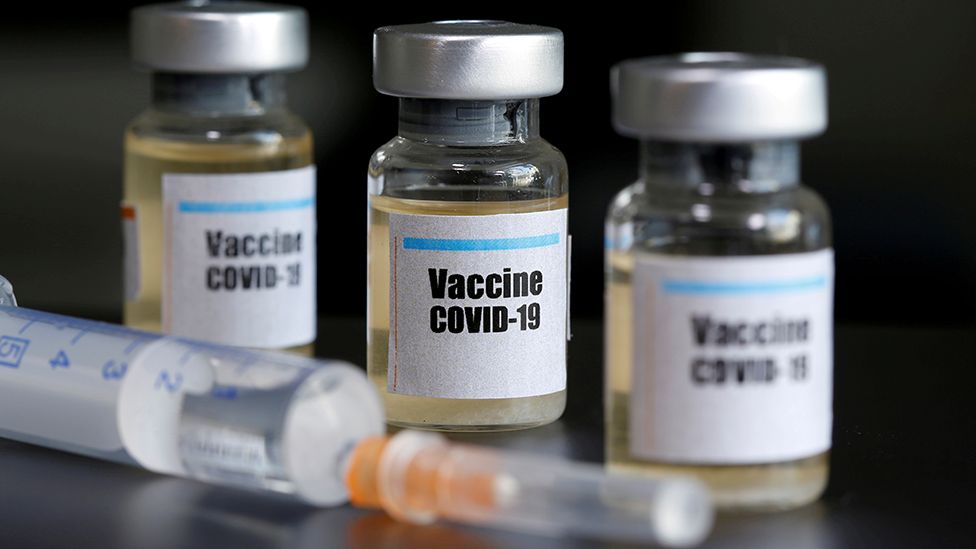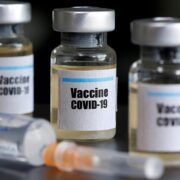 Every Californian age 16 and older will be eligible for the COVID-19 vaccination on April 15. Vaccination is one of the most important ways to end the COVID-19 pandemic, and I urge everyone to get the vaccine when it’s their turn so they can protect themselves, their loved ones, and our community.
Every Californian age 16 and older will be eligible for the COVID-19 vaccination on April 15. Vaccination is one of the most important ways to end the COVID-19 pandemic, and I urge everyone to get the vaccine when it’s their turn so they can protect themselves, their loved ones, and our community.
While the COVID-19 pandemic has impacted our lives for more than a year, I am encouraged to see the remarkable efforts Californians are making toward ending this pandemic.
For almost three decades, as a physician and an infectious disease specialist, I’ve had the honor and privilege of practicing medicine and working to improve the health and well-being of my patients. As the state’s epidemiologist, I have the responsibility of protecting the public health of 40 million Californians, which is why I believe getting vaccinated is very important.
Californians have access to three life-saving vaccinations produced by Pfizer-BioNTech, Moderna, and Johnson & Johnson. All three vaccines are safe and protective, with only slight differences. All of them have gone through rigorous clinical trials, are approved by the U.S. Food and Drug Administration, and are proven to provide protection from the virus, particularly from the risks of severe disease, hospitalization, and death.
Californians who are eligible should get any vaccine they can, as soon as they can, no matter the manufacturer.
As state leaders and our community partners work to speed up distribution of COVID-19 vaccines statewide, it feels good to note that, as of late March, more than 17 million doses have been administered, with nearly 6 million Californians fully vaccinated.
COVID-19 cases and hospitalizations are down throughout our state due to the efforts of Californians to slow the spread, including wearing a mask, remaining 6 feet from those not in our households, and getting the vaccine when it’s our turn.
California is also taking steps to make sure that our most vulnerable communities get vaccinated. Recently, the California Department of Public Health announced that 2 million doses of COVID-19 vaccines were administered in the state’s hardest-hit communities where transmission rates and disease burden have been the highest. Protecting our most vulnerable communities is not only the right thing to do, but increasing vaccination access to people who have experienced the most infections will also allow all counties to reopen activities and businesses safely while continuing to protect public health.
While we make strides to end the pandemic, we cannot let down our guard. We are seeing increases again in other states and countries. COVID is still prevalent in our communities and its variants continue to threaten the progress we’ve made. We are in the home stretch of this pandemic, but we must continue to protect ourselves and our loved ones until we can get more people vaccinated.
Californians can help slow the spread by remaining vigilant. It’s important to wear properly fitting masks consistently. We need to continue practicing physical distancing with people from outside our households, washing our hands, and getting vaccinated when it’s our turn so we can return to hugs and social gatherings when it is safer.
Find out when and where you can get vaccinated by signing up at MyTurn.ca.gov, where information is available in 12 languages. For those without internet access, appointments can be made by calling (833) 422-4255. The hotline is available in English with third party translators available in more than 250 additional languages. Individuals also can contact their primary care physician, local pharmacy, or local public health department.
Getting the vaccine is free for everyone, even for those without insurance or who are undocumented. With more people vaccinated, we can envision a day when California reaches community immunity and when strict public health measures are no longer necessary. Let’s all continue to remain strong in this fight to get back to the life and the people we miss for just a little bit longer.
* * *
The opinions, beliefs and viewpoints expressed by the author do not necessarily reflect the opinions, beliefs and viewpoints of the Asian Journal, its management, editorial board and staff.
* * *
Dr. Erica Pan is the California state epidemiologist and Deputy Director for the Center for Infectious Diseases at the California Department of Public Health.







